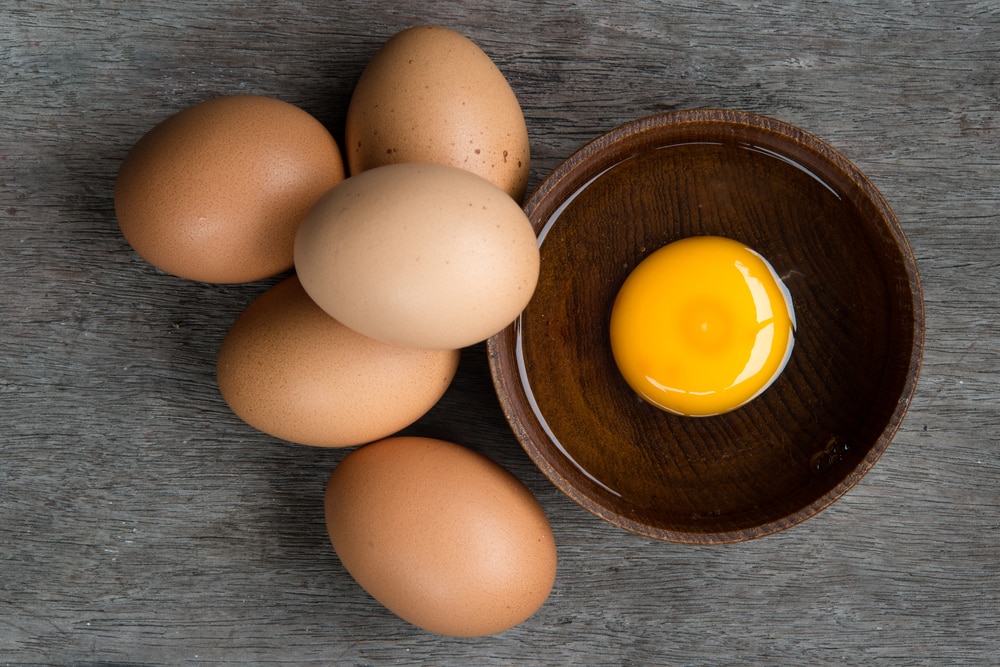Eggs are a great breakfast and an ingredient that helps in the preparation of various dishes and cakes. They contain protein, fat, vitamins B and D, and they are also tasty. Simply, every refrigerator must have them. You probably know how to prepare eggs in different ways, but do you know what their shelf life is? That is, how long are eggs safe to use?
The good news is that you don’t have to stick to the date written on the package, as eggs can last much longer. In addition, there are ways to check for yourself whether they are still safe for consumption.
How long can eggs last?
According to some recommendations, you should use the eggs within three weeks after you buy them. But what if you can’t remember when you bought them?
Namely, there is a difference between the terms “best before” and “use by” (or “use by”).
“Best before” means that a food item will have the best quality (eggs in this case) and the best taste by that date. In other words, you can use the food after that date if you don’t notice that it has gone bad. They are not dangerous to use.
“Expiration date” or “use by” refers to food safety and is the period after which you should not consume the food under any circumstances. These are usually perishable foods that can pose a health hazard.
How do you know if the eggs are still good?
The best way to tell if an egg is rotten is to examine it carefully.
Study it – a rotten egg can look sweaty on the outside or even sticky. It may also have a pinkish egg white when you break it, indicating the presence of bacteria. If you notice any changes, throw it away.
Smell it – if the egg stinks after you crack it, don’t hesitate, throw it away.
Float test – as the egg ages, moisture escapes through the shell and air enters. To test an egg (unbroken), place it in a bowl of water. If it floats, it’s old. If it sinks, it’s fresh. However, old doesn’t mean it’s broken. You can use it if you break it and it doesn’t stink.
Also, it is important to know that cooking will not reduce the smell or bad taste. Yes, some bacteria will disappear, but your egg won’t taste good.
One thing is important to know: Although eggs can go bad in the refrigerator, you don’t have to worry about salmonella.
“The pathogen we fear most is Salmonella Enteritidis, but it doesn’t grow below 7°C,” said Benjamin Chapman, a food safety expert and professor at the University of North Carolina.
He adds that the contamination happens inside the egg, so once it’s there, nothing can change it. In other words, how long the egg has been in the refrigerator will not play a role in the development of salmonella. According to a review from 2009, salmonella develops inside the egg white, yolk and shell. It causes extremely unpleasant symptoms such as:
– fevers
– nausea
– vomiting
– spasms
– diarrhea
If you suspect this type of infection, see a doctor immediately.
How can eggs last longer in the refrigerator?
There are actually tricks you can use, it says I live.
– Check the date before you buy them.
– Maybe you are buying eggs on sale or you haven’t paid attention yet, but it is important to check when they can be used or when they are packed. There’s no point in buying them on sale if you’re going to throw away half the box. Also, open the box and make sure all the eggs are intact.
– Store eggs properly.
– When you buy them, immediately put them in the fridge. Likewise, keep the refrigerator below 4°C. You should never leave eggs out of the refrigerator for more than two hours, this is the best way to avoid the development of bacteria.
– Keep them in the carton and do not put them in the door, because that is the warmest part of the refrigerator.
Track N1 via Android apps | iPhone/iPad and social networks Twitter | Facebook | Instagram.

